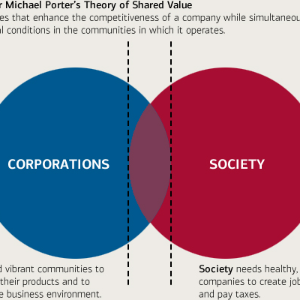Please find below the
Semi-Finalist Evaluation
Judges'' comments
Judge 1:
The owner of this proposal needs to first decide whether he wants to support investment or support funding because there are very different issues associated with each of these options.
- Investment implies the expectation of a return. Groups of alumni, like the MIT Angels Boston and the MIT Alumni Angels Group of Northern California, do invest in MIT startups. The Dorm Room Fund is a student run initiative that invests in MIT student startups. Startups in sustainable technologies often face funding challenges because regulatory quotas and subsidies distort the finances around their venture. This makes it difficult for investors to predict what their return will be over time, which makes them reticent. I have seen this first hand with ventures that I have mentored. Also, early stage startups by students have very high failure rates (80%+), so investors look for startups based on off the shelf technology and shy away from research based ventures (unless you are an MIT Professor). If you want to increase investment you have to reduce the risks associated with both technology and economics. This is an issue the owner of this proposal should address.
- Alumni (along with friends of MIT and charitable foundations) do provide funding for sustainable startups either directly or with gifts to specific programs. In addition to the Climate CoLab Grand Prize, funding for sustainable technologies has come from the Legatum and Deshponde Centers, the MIT $100K Competition, and the MIT Clean Energy Prize. Other potential sources include the MIT Sandbox Innovation Fund Program, the MIT Food and Agribusiness Innovation Prize, and the MIT Water Innovation Prize. I am sure that there are other funding sources that I have missed. The MIT Venture Mentoring Service has mentored a number of non and for profit sustainable startups. The owner of this proposal should suggest how to build on the activities that are already in place.
- With respect to the development of 'a sustainable MBA,' Sloan already offers a sustainability certificate.
Judge 2:
You have three interesting ideas (really only two since #1 AND #3 both involve investing, but there needs to be much more substance to make this attractive.
1) How do you identify opportunities to invest and vet them to assure that they are real?
2) Who does this? Do you have a group of volunteers? paid staff?
3) How do you communicate the opportunities to alumni? We are not a "network". We are 130,00 individuals of all ages and interests.
4) Are you simply maintaining a list and interested alumni need to find the list, research the opportunity and figure out how to invest? If this is the case few will do all this work when brokerage companies, friends, classmates, etc. are already pulling them to invest.
You need to fins a way to identify an already-interested group of alumni who don't need to be sold on the value of climate change technologies and who have money to invest.
I don't quite see how alumni can help develop "new educational initiatives" within a sustainability MBA unless you mean providing internship opportunities.
The ideas are good but the proposal needs much more substance for the reader to understand who is doing what to whom and when and how.
No comments have been posted.
